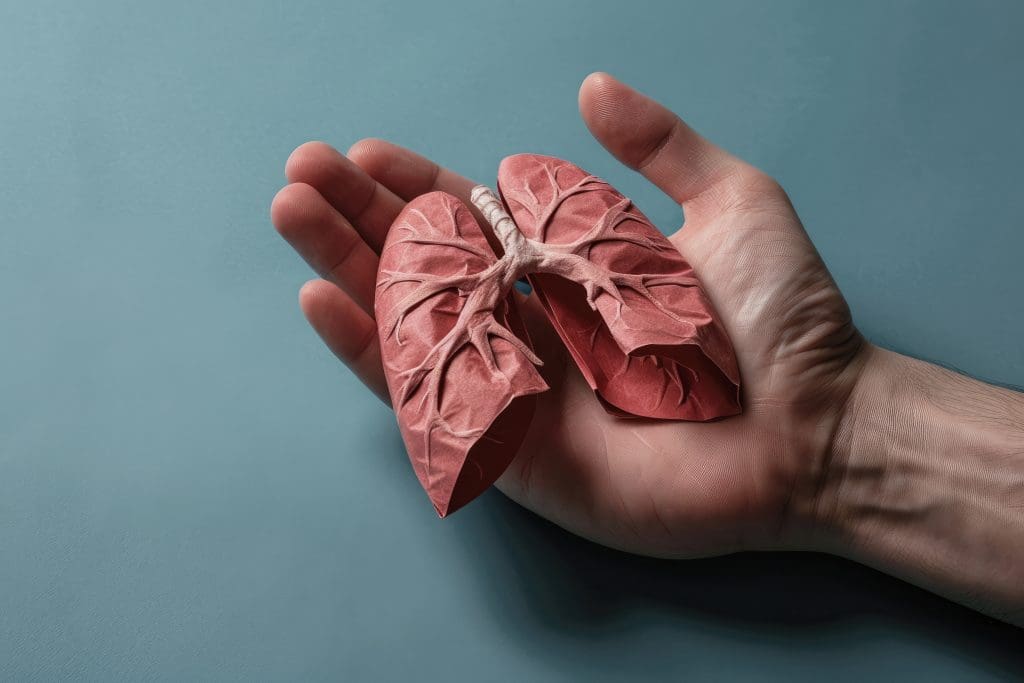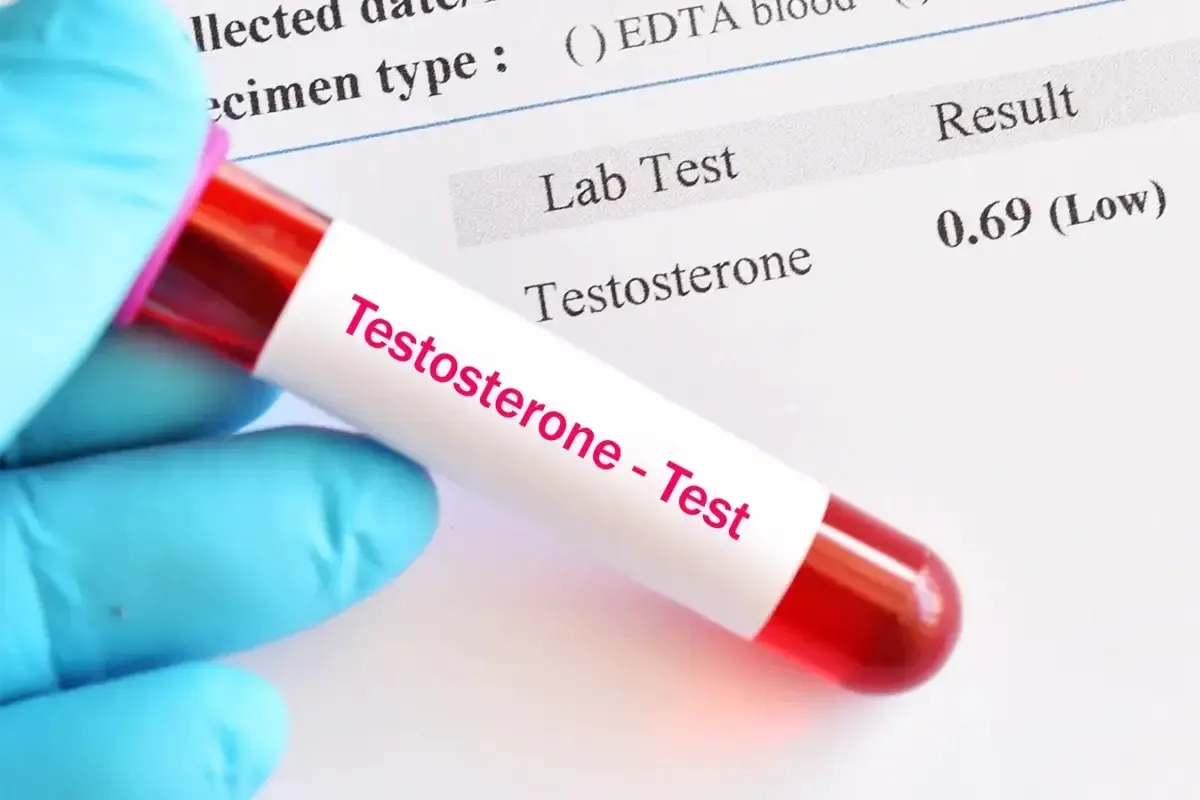What is the biggest symptom of colon cancer? Colon cancer often starts without any symptoms, making it a silent threat. “Many people with colon cancer don’t have symptoms at first. When symptoms do appear, they depend on the cancer’s size and where it is in the large intestine.”
One of the biggest warning signs is blood in stool. This can mean something is wrong in the digestive tract. It’s important to know the warning signs of colon cancer to catch it early.
Early detection can greatly improve survival chances. Knowing symptoms like changes in bowel movements or rectal bleeding can lead to getting medical help.
Key Takeaways
- Colon cancer often starts without symptoms.
- Blood in stool is a significant warning sign.
- Early detection improves survival rates.
- Recognizing colon cancer warning signs is key.
- Changes in bowel movements can be a symptom.

Understanding Colon Cancer: An Overview
Colon cancer, also known as colorectal cancer, is a condition where cancerous cells develop in the colon or rectum. It starts with small clumps of cells called polyps inside the colon.
What is Colon Cancer?
Colon cancer is a type of cancer that affects the large intestine (colon). It begins as a polyp, an abnormal growth on the inner lining of the colon. Not all polyps are cancerous, but some can turn into cancer over time.
Prevalence and Risk Factors
Colon cancer is one of the most common types of cancer worldwide. The risk factors include age, family history of colon cancer, and certain genetic syndromes. Lifestyle factors like a diet low in fiber, high in fat, lack of physical activity, and obesity also play a role.
The risk of colon cancer increases with age, though it can happen at any age. Knowing these risk factors is key for prevention and early detection.
The Importance of Early Detection
Early detection of colon cancer greatly improves treatment outcomes. Screening tests can spot polyps before they turn cancerous. Regular screening is advised for those over 45, or earlier for those with a family history or other risk factors.
| Risk Factor | Description |
| Age | Risk increases after 45 years |
| Family History | Having a first-degree relative with colon cancer |
| Lifestyle Factors | Diet low in fiber, high in fat; lack of physical activity; obesity |
Understanding colon cancer, its risk factors, and the importance of early detection can help in reducing its prevalence and improving treatment outcomes.
Rectal Bleeding: The Most Common Warning Sign
Rectal bleeding or blood in the stool is a common warning sign of colon cancer. It can be scary and often linked to other issues like hemorrhoids. But, if it’s related to colon cancer, it’s a serious sign that needs quick medical check-up.
Causes of Rectal Bleeding in Colon Cancer
Rectal bleeding in colon cancer happens because of tumors in the colon or rectum. These tumors can bleed because they are fragile or grow and get ulcers. The bleeding might be visible or hidden, found only in lab tests.
The blood in stool can look different: it might be bright red, dark red, or black. This depends on where and how bad the bleeding is.
How to Identify Blood in Stool
Spotting blood in stool means looking for color changes or seeing blood. Bright red blood usually means bleeding from the lower colon or rectum. Darker stools might mean bleeding from higher in the colon or small intestine.
“The presence of blood in the stool is a symptom that should never be ignored. While it can be caused by less serious conditions, it is a critical warning sign of colon cancer.”
Distinguishing Cancer-Related Bleeding from Hemorrhoids
Hemorrhoids often cause rectal bleeding, but it’s important to tell the difference from cancer. Hemorrhoid bleeding is usually bright red and happens during or after bowel movements. Cancer bleeding, while also bright red, might be mixed with stool or happen without bowel movements.
| Characteristics | Hemorrhoid Bleeding | Cancer-Related Bleeding |
| Color of Blood | Bright Red | Bright Red or Mixed |
| Timing | During or after bowel movements | Can occur at any time |
| Associated Symptoms | Pain, itching | Changes in bowel habits, weight loss |
When Rectal Bleeding Requires Immediate Medical Attention
Heavy, ongoing, or painful rectal bleeding needs quick medical help. It’s also urgent if you have other symptoms like abdominal pain, weight loss, or changes in bowel habits. Early check-ups are key to finding the cause and starting the right treatment.
Knowing the importance of rectal bleeding and its link to colon cancer can help catch it early. If you’re seeing blood, see a doctor for a full check-up.
Changes in Bowel Habits as Critical Indicators
One of the key signs of colon cancer is a change in bowel habits. These changes can be ongoing and affect a person’s life quality a lot.
Persistent Diarrhea and Its Connection to Colon Cancer
Persistent diarrhea means having very loose stools often. In colon cancer, tumors can mess with the colon’s normal work. It’s important to watch how long and bad the diarrhea is, as long periods might show a problem.
Chronic Constipation as a Warning Sign
At the other end, chronic constipation is also a warning. It’s when it’s hard to go or you don’t go often enough. Colon cancer can cause this by blocking stool in the colon.
Narrow Stools and Their Significance
Narrow stools, or “pencil-thin,” might mean a tumor is blocking the colon. This change in stool shape is a big sign to see a doctor.
Alternating Diarrhea and Constipation
Some people get alternating diarrhea and constipation. This back-and-forth in bowel habits can point to colon cancer. It shows an obstruction that’s partly blocking the bowel.
Spotting these changes early is key. If you notice them, get medical help. A doctor can check your symptoms and suggest tests.
- Keep an eye on changes in bowel habits.
- Tell your doctor about ongoing diarrhea or constipation.
- Notice any changes in stool shape or how often you go.
Abdominal Discomfort and Pain
One of the key signs of colon cancer is ongoing abdominal discomfort. This discomfort can show up as pain, cramps, or bloating. It’s important to understand this discomfort to catch and treat colon cancer early.
Types of Abdominal Pain Associated with Colon Cancer
Colon cancer can cause different kinds of abdominal pain. This pain can be constant or come and go, and its intensity can vary. Some people might feel sharp pains, while others might feel dull aches. Abdominal pain associated with colon cancer often lasts a long time and isn’t always linked to eating or bowel movements.
Distinguishing Cancer-Related Pain from Other Digestive Issues
It’s hard to tell if abdominal pain is from colon cancer or another digestive problem. But, cancer pain usually lasts longer and might come with other signs like changes in bowel habits or unexpected weight loss. If you’re feeling ongoing abdominal discomfort, you should see a doctor for a check-up.
When Abdominal Pain Warrants Medical Evaluation
Abdominal pain that keeps getting worse or doesn’t go away needs a doctor’s look. Also, if you have other symptoms like rectal bleeding, big changes in bowel habits, or unexplained weight loss, you should get medical help right away. Catching colon cancer early can really help with treatment.
Stomach Cramps and Their Relationship to Colorectal Cancer
Stomach cramps can be a sign of colorectal cancer. They might happen because the tumor blocks the bowel or affects the tissues around it. These cramps can be very bad and might also cause bloating and gas. If you’re having constant or really bad stomach cramps, talk to your doctor about it.
Unexplained Weight Loss and Fatigue
Unexplained weight loss and constant fatigue can be signs of colon cancer. These symptoms often show up together. They can be scary because they might mean the cancer is advanced.
Why Colon Cancer Causes Weight Loss
Colon cancer can cause weight loss in several ways. As it grows, it can change how the body uses energy. It can also make it hard for the body to absorb nutrients, leading to weight loss.
Understanding Cancer-Related Fatigue
Cancer-related fatigue is a deep tiredness that doesn’t go away with rest. In colon cancer, fatigue comes from the cancer’s effect on the body. It can also be caused by anemia or the body’s reaction to the cancer.
Recognizing the Combination of Symptoms
It’s important to notice when weight loss and fatigue happen together. This combo is often a sign of colon cancer. It’s also a clue if you’re experiencing changes in bowel habits or stomach pain.
Metabolic Changes in Cancer Patients
Cancer can change how the body uses energy. This can cause weight loss and fatigue, among other symptoms. Knowing about these changes helps manage symptoms and improve life for cancer patients.
Being aware of these symptoms and their link to colon cancer can help catch it early. If you’re losing weight and feeling tired all the time, see a doctor. They can figure out what’s causing it.
Iron Deficiency Anemia and Dark Stools
Colon cancer often leads to iron deficiency anemia. This happens when the body loses more iron than it gets. This loss reduces the production of hemoglobin, a key protein in red blood cells.
The Relationship Between Colon Cancer and Anemia
Colon cancer can cause bleeding in the digestive tract, even if it’s not always seen. This chronic blood loss depletes iron stores, causing anemia. The body can’t replace this iron because of ongoing bleeding.
Identifying Dark, Tarry Stools
Dark, tarry stools, or melena, are a sign of gastrointestinal bleeding. This happens when blood is partially digested in the digestive system. It makes the stool look black and tarry.
Laboratory Tests for Anemia Detection
To diagnose iron deficiency anemia, doctors use lab tests. These include a complete blood count (CBC) and iron level tests. These tests show how severe the anemia is and help decide treatment.
| Test | Purpose | Indications |
| Complete Blood Count (CBC) | Measures hemoglobin and hematocrit levels | Low levels indicate anemia |
| Iron Level Test | Assesses serum iron levels | Low levels confirm iron deficiency |
| Ferritin Test | Evaluates stored iron levels | Low levels indicate depleted iron stores |
How Chronic Blood Loss Affects the Body
Chronic blood loss from colon cancer can weaken the body. It causes fatigue, weakness, and shortness of breath. These symptoms happen because the body can’t carry enough oxygen to tissues and organs.
In conclusion, iron deficiency anemia is a serious issue linked to colon cancer. Recognizing signs like dark, tarry stools and getting lab tests are key for early detection and treatment.
Other Digestive Symptoms to Monitor
Colon cancer often shows up through different digestive symptoms. Symptoms like rectal bleeding and changes in bowel habits are well-known. But, bloating, mucus in stool, and feeling like you didn’t finish going to the bathroom are also important signs.
Bloating and Excessive Gas
Bloating and too much gas are common issues. They can be signs of colon cancer. The tumor in the colon can block the normal flow of intestinal contents. This leads to gas buildup.
Mucus in Stool
Mucus in stool is another symptom to watch. Mucus is a thick, protective fluid. In colon cancer, it can mean irritation or inflammation from a tumor.
Feeling of Incomplete Bowel Movements
Feeling like you didn’t finish going to the bathroom is a symptom. It’s a sign that the bowel isn’t emptying fully. This can happen if a tumor is partially blocking the bowel.
Changes in Digestive System Function
Changes in how your digestive system works are also signs. This includes changes in how often or how solid your stools are. These changes can happen because of a tumor’s effect on the bowel’s function.
Knowing these digestive symptoms and talking to a healthcare provider is key. It can help find colon cancer early and treat it. Always watch for any lasting changes in your digestive health.
Advanced Symptoms of Colon Cancer
Colon cancer in its later stages can cause severe symptoms. These include bowel obstruction and metastasis. These symptoms can lead to serious health issues that affect a person’s quality of life.
Signs of Colon Obstruction
A blockage in the intestine, known as a bowel obstruction, is a symptom of advanced colon cancer. This condition can cause severe abdominal pain, vomiting, and constipation. If not treated promptly, bowel obstruction can lead to life-threatening complications.
The symptoms of colon obstruction include:
- Severe abdominal pain
- Vomiting
- Constipation or inability to pass gas
- Bloating
Symptoms of Metastatic Colon Cancer
When colon cancer metastasizes, it spreads to other parts of the body. This can include the liver, lungs, or lymph nodes. Symptoms can vary but often include pain, fatigue, and weight loss.
| Location of Metastasis | Common Symptoms |
| Liver | Abdominal pain, jaundice |
| Lungs | Coughing, shortness of breath |
| Lymph Nodes | Swollen lymph nodes, pain |
Emergency Warning Signs
Certain symptoms require immediate medical attention. These include severe abdominal pain, vomiting blood, and signs of infection. Recognizing these emergency warning signs is key for timely intervention.
“Early detection of colon cancer significantly improves treatment outcomes. Recognizing advanced symptoms is critical for managing the disease effectively.”
” Oncologist
Late-Stage Colorectal Cancer Manifestations
Late-stage colorectal cancer can manifest through various symptoms. These include significant weight loss, persistent pain, and changes in bowel habits. Understanding these manifestations is essential for providing appropriate care and support.
Advanced colon cancer symptoms can significantly impact a patient’s quality of life. It is vital to manage these symptoms effectively to improve patient outcomes.
Diagnosis and Screening for Colon Cancer
Today, finding colon cancer early is easier than ever. Doctors say people with average risk should start screening at 45.
Recommended Screening Guidelines
The American Cancer Society advises starting regular screening at 45 for those with average risk. This can find and remove polyps before they turn into cancer.
- Annual fecal immunochemical test (FIT) or fecal occult blood test (FOBT)
- Colonoscopy every 10 years
- CT colonography (virtual colonoscopy) every 5 years
- Stool DNA test (sDNA) every 3 years
Diagnostic Procedures and Tests
If tests show a problem, more tests are needed. These include:
| Diagnostic Procedure | Description |
| Colonoscopy | A detailed examination of the colon using a flexible tube with a camera |
| Biopsy | Removal of tissue samples for pathological examination |
| Imaging Tests | CT scans, MRI, or PET scans to assess the extent of cancer |
The Role of Colonoscopy in Detection
Colonoscopy is the top choice for screening. It lets doctors see the colon and remove polyps.
Preparing for a Colonoscopy
Getting ready means changing your diet and cleaning your bowels. This helps doctors see everything clearly.
What to Expect During the Procedure
During a colonoscopy, you’ll be sedated. A colonoscope is inserted into your rectum to check your colon.
Newer Screening Methods and Technologies
New technologies have brought newer screening options. These include stool DNA tests and capsule colonoscopy. They’re good for those who don’t like traditional colonoscopy.
Conclusion: When to See a Doctor
It’s important to know the early signs of colon cancer. If you have symptoms like rectal bleeding, changes in bowel habits, or abdominal discomfort, see a doctor. Unexplained weight loss is also a warning sign.
Don’t ignore these symptoms. Early detection can greatly improve treatment chances. If you’re worried about lasting symptoms, make an appointment with a healthcare professional. They will check your condition and suggest tests to find out what’s wrong.
Being proactive about your health is key. It’s not just about severe symptoms. Pay attention to any changes in your body that might mean a health issue.
FAQ
What are the most common symptoms of colon cancer?
Common symptoms include rectal bleeding and changes in bowel habits. You might also feel abdominal pain, lose weight without trying, or get very tired. Other signs are bloating, gas, mucus in stool, and feeling like you didn’t finish going to the bathroom.
Is rectal bleeding always a sign of colon cancer?
No, rectal bleeding isn’t always from colon cancer. It can also happen due to other issues like hemorrhoids. But, if you have ongoing or bad bleeding, see a doctor to check for colon cancer.
What changes in bowel habits could indicate colon cancer?
Signs that might mean colon cancer include diarrhea that won’t stop, constipation that lasts, narrow stools, or switching between diarrhea and constipation. Talking to your doctor about these changes is very important.
Can abdominal pain be a symptom of colon cancer?
Yes, abdominal pain can be a sign of colon cancer. The pain’s type and how bad it is can vary. If you have ongoing or severe pain, get medical help right away.
Why does colon cancer cause weight loss?
Colon cancer can lead to weight loss because you might not want to eat as much. It can also change how your body uses energy and burns more calories. If you lose weight without trying, see your doctor to find out why.
What is the relationship between colon cancer and iron deficiency anemia?
Colon cancer can cause iron deficiency anemia because of ongoing blood loss. If you have anemia, your doctor might do more tests to check for colon cancer.
How is colon cancer diagnosed?
Doctors use tests and procedures to find colon cancer. They recommend colonoscopies for people over 45. Other tests like stool tests and CT scans might also be used.
What is the role of colonoscopy in colon cancer detection?
Colonoscopy is key in finding colon cancer. It lets doctors see inside the colon and remove polyps before they turn cancerous. Regular colonoscopies can help prevent and catch colon cancer early.
Are there newer screening methods and technologies for colon cancer?
Yes, new tests like stool-based tests and CT colonography are available. These can help find colon cancer more easily and lower the risk of getting it.
When should I see a doctor if I’m experiencing symptoms of colon cancer?
If you have symptoms like rectal bleeding, changes in bowel habits, or severe abdominal pain, see a doctor fast. Early treatment can greatly improve your chances of recovery.








